With winters getting colder and sub-zero temperatures becoming more common, River Canal Rescue has put together some tips on how to winterise your narrowboat and so avoid costly repair bills.
cooling systems
Just like vehicles, any closed loop cooling system needs to have anti-freeze added and replaced (per manufacturers guidelines). Not only will this minimise the risk of splits or fractures associated with freezing water, it will improve the engines cooling efficiency and minimise corrosion risk to the engine.
Where raw water (drawn from the river) cooling systems are in place, drain down by briefly running the engine when out of the water to ensure the system is empty. If afloat, the quickest and simplest solution is to shut off the inlet valve (seacock) and drain as much water from the system as possible.
Where no drain plug is available, disconnect a hose, drain the water from the system and leave disconnected. Although this will not empty the system completely, it will allow for expansion should the water freeze and reduce the risk of ruptured pipes. Its also worth insulating any accessible tight bends as this is where fluid will collect even after draining. Once you're ready to start cruising again, reconnect any pipes, refill the system and open the seacock.
If the engine's winterised or seacocks closed, clearly mark the engine and its controls; it should prevent accidental operation.
general checks
Check lockers, cockpit and other areas to ensure all drain holes and plugs are clear of debris, leaves, dirt etc. These areas block easily and in heavy or prolonged rain, can cause a vessel to take on water causing corrosion where the waters left sitting or even worse, sinking.
Always test the bilge pump and if possible, invest in an automatic one its far more reliable than a manual. Many of the sunken vessels attended over the summer would still be afloat if they had an automatic pump fitted. An automatic bilge pump immediately responds to water ingress with the float switch dictating when it should pump. Should a leak develop from cooling system, hull or other source (or theres a build up of rain water), this will keep your vessel safe.
Regular checks to ensure batteries are charged are vital. Test the battery charge levels before leaving the boat and when you return or before a long journey. Heavy rainfall, leaking stern glands and issues with weed hatches can result in water ingress that quickly fills the boat and causes it to sink. If batteries go flat at a critical point it can be devastating.
Grease the stern tube before leaving the boat, this will prevent water ingress. Although most stern glands leak once the propeller turns, the grease acts like a seal whilst not in use.
Water in a boat will cause it to be lower in the water, placing outlets such as those for a shower, sink or air vent, nearer to the water level (leading to catastrophic results!).
Ensure boat mooring pins and ropes are secure, yet slack enough to deal with the normal rise or fall of water levels. Where possible attach a long rope to a tree or higher ground, so that if flooding occurs, or the boat becomes loose in high winds, the additional rope could provide a much-needed safety line. In extreme weather or prolonged rainfall, visit the boat regularly to adjust mooring ropes and check bilge pumps and batteries are coping with the situation.
Its also a good idea to run the engine for an hour every time you visit as this pushes oil around the engine and prevents rusting, plus it tops up the battery if left running long enough (beware of doing this if you've drained the cooling system!).
Spray terminals with a silicone-free lubricant and grease all available grease points on the engine and drive, plus electrical connectors. Also lubricate linkages and gear/throttle slides, this will prevent rusting/corrosion and give these components a longer life.
generators
If not in use, store in a gas-tight locker the same regulations as Liquid Petroleum Gas (LPG) apply.
water and heating
Freezing temperatures can cause split or fractured pipes which, if left over a gradual period, can lead to complete or partial flooding.
Drain down the water system (including drinking water and cistern) and leave taps in the open position. Most water heaters have a screw plug at their base and can accommodate an old-fashioned cycle pump which makes the emptying of water that much quicker.
Taps should be left open because if any water is left in the system and it freezes, the pressure on the pipes will be less due to air coming out of the taps.
An unnoticed pipe split and flooding will almost certainly lead to sinking which may not be covered by insurers (not all cover frost damage and a gradual incursion of water may not be classed as accidental). If covered, insurance policies normally insist machinery is winterised according to manufacturers recommendations. If not available, the advice of a qualified engineer should be sought. Taking no precautions is asking for trouble.
Lag your hot and cold pipes and top up anti-freeze in keel cooling and other sealed heating systems (such as radiators connected to the boiler). This point is repeated because its the single most important thing to do, whether your narrowboat is being used over the winter period or not.
protecting possessions
Remove or put out of site any alcohol, valuable and electrical items. If you have a secure mooring this might not be such an issue, but if in doubt, take it out.
Invest in decent locks, your insurance policy requires this and its more likely to deter thieves.
Ensure all windows and access points are firmly closed and locked before leaving the vessel and visit regularly. Prevent the theft of external items, such as mushroom vents, solar panels and chimneys, by fixing with extra-strength sealant and invest in security shear nuts. Ask neighbouring boats to call if they have any concerns.
diesel treatment
Excessive water in the tank can lead to water feeding through the fuel system (RCR regularly removes large quantities of water from fuel tanks in the early cruising season). To prevent this;
Regularly check your filler cap seal and replace if worn, cracked or damaged. The cap sits lower than the deck so if its been raining wipe away excess water before opening the cap.
Either leave the tank empty during winterisation and remove any water on your return or leave the tank full and treated*.
*Fuel treatments remove water and deal with contamination such as diesel bug – where enzymes, bacteria etc live off the water in diesel and affect the diesel properties. Inactive boats are more at risk of growth developing in the fuel tanks so treat with Marine 16 Diesel Fuel Complete.
freezing weather & ice
If the boat's encased in ice and you're worried about the effects on the hull take care breaking the ice can result in more damage than simply leaving it. The only time the ice should be broken is if you need to move, and this should be only undertaken with caution. The stress on the hull from a large surface area of ice is huge and at a minimum will cause damage to the blacking.
don't forget to de-winterise
Having gone through the winterisation process, its important to do the reverse when the warmer weather arrives. This means closing the taps, replacing the plug in the water heater and switching the water pump on.
Prior to cruising, run your engines up to running temperature (if a gauge is available onboard) or for approximately 1/2 hr. Check every inch of the cooling system for leaks or escaping steam and if something is found, immediately call-out a qualified engineer.
For domestic water supplies; once the water pump is back on, open and run water through each tap. Start with those closest to the pump and work through to the one furthest away this will push any air locks through the system. Drain any water in the tank out and refill with fresh drinking water.
Remember servicing, including the engine, LPG and electrical systems, plus fire extinguishers and escape hatches. Everything should pass Boat Safety Scheme scrutiny.
Although no action is needed for gas pipes at the start of the winter, its a good idea to paint connections with 50% soap liquid and 50% water using a small artists brush this will show up any minor gas leaks at the joints.
Before you run the engine, check water trap filters and remove any excess water. If water is present or there are signs of diesel bug (black dust or jelly), dip the tank to identify the severity of the issue and then treat with a fuel treatment or have the fuel polished accordingly.
The easiest way to check for water in the tank is to use a clear plastic hose. Drop it into the tank (being careful not to disturb the fuel) and when you feel the bottom, place your thumb over the end to seal it and withdraw the hose. This should provide you with a sample of the tank (plus an indication of any diesel bug contamination) and show the amount of water present.
REPRODUCED BY KIND PERMISSION OF RIVER CANAL RESCUE
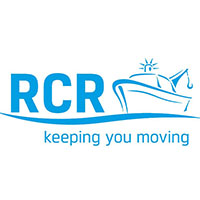
River Canal Rescue runs boat and engine maintenance courses throughout the year
To find out more visit: website; write: enquiries@rivercanalrescue.co.uk or call 01785 785680.


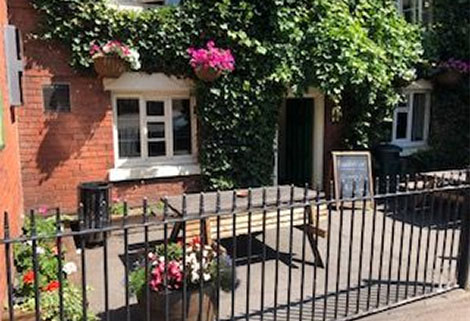 From the front the Pub is a sprawling building with the brewery situated to the left and a small court yard at the front with two imposing grapevines and old English ivy present in keeping with name. Once you come into the pub the first room you come to is the main bar, a spacious room with a traditional bar and scrub top tables. Locals are stood at the bar laughing and joking with the bar staff. Other groups of various ages are scattered amongst the other tables and the open fire roars setting a warm friendly atmosphere.
From the front the Pub is a sprawling building with the brewery situated to the left and a small court yard at the front with two imposing grapevines and old English ivy present in keeping with name. Once you come into the pub the first room you come to is the main bar, a spacious room with a traditional bar and scrub top tables. Locals are stood at the bar laughing and joking with the bar staff. Other groups of various ages are scattered amongst the other tables and the open fire roars setting a warm friendly atmosphere.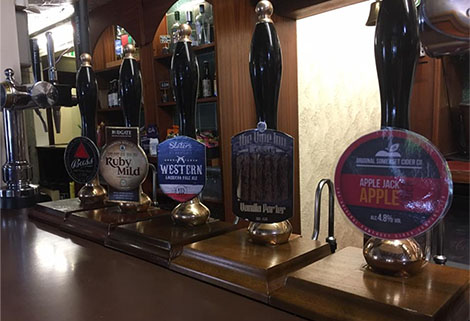 Behind the bar there are some 12 large kilner taped jars labelled with such delights as Christmas pudding gin, cherry rum and raspberry vodka. A glance at the hand pulls shows 4 of The Vine’s own beers all lined up in uniform on the hand pulls are a vanilla porter, grapefruit IPA and a ruby mild with their guest ale of single hoped summit, but the knowledgeable staff are quick to inform that the pecan porter provides the aromas coming from the brewery.
Behind the bar there are some 12 large kilner taped jars labelled with such delights as Christmas pudding gin, cherry rum and raspberry vodka. A glance at the hand pulls shows 4 of The Vine’s own beers all lined up in uniform on the hand pulls are a vanilla porter, grapefruit IPA and a ruby mild with their guest ale of single hoped summit, but the knowledgeable staff are quick to inform that the pecan porter provides the aromas coming from the brewery.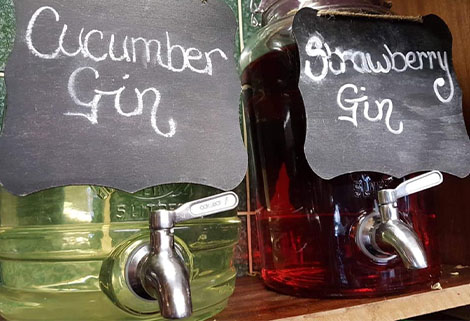 To the rear is a large pool room over looking a lovely courtyard style beer garden complete with a large covered area.
To the rear is a large pool room over looking a lovely courtyard style beer garden complete with a large covered area.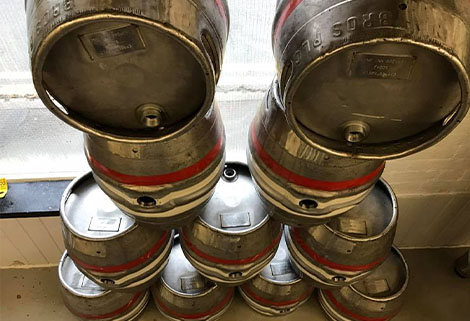 Landlord Oliver Westwood and his team (most of which have been there a number of years which is always a good sign) have been at The Vine since 2005. Under his tenure the micro brewery has been added and a great deal of improvements have been made he says. “The Vine Inn is a labour of love for me and the staff. It was always my father's local and he even had a stint at running it as a tenant when it was a punch tavern pub. When it came up on the market as a freehold we just had to jump at the opportunity to rescue her. Since then we have replaced roofs, installed a new garden, taken out miles of Artex, re wired every room and generally worked on years of neglect at the hands of various pub co’s and breweries. We still have a long way to go but have a great vision of what the pub can be to secure it for generations to come”.
Landlord Oliver Westwood and his team (most of which have been there a number of years which is always a good sign) have been at The Vine since 2005. Under his tenure the micro brewery has been added and a great deal of improvements have been made he says. “The Vine Inn is a labour of love for me and the staff. It was always my father's local and he even had a stint at running it as a tenant when it was a punch tavern pub. When it came up on the market as a freehold we just had to jump at the opportunity to rescue her. Since then we have replaced roofs, installed a new garden, taken out miles of Artex, re wired every room and generally worked on years of neglect at the hands of various pub co’s and breweries. We still have a long way to go but have a great vision of what the pub can be to secure it for generations to come”. This is evidenced in the work to the kitchen, which is now producing bar snacks and sharing platters and other delights into the restaurant room and bars. This whilst the function room is also being upgraded to host live music and entertainment after a long hiatus. Oli enthusiastically tells us he already has a commitment from the local blues club to use the space on a monthly bases for a rock and blues night. He’s hoping to attract more local musicians to host residences here in 2020 to turn the 16th century function room into a lively little venue.
This is evidenced in the work to the kitchen, which is now producing bar snacks and sharing platters and other delights into the restaurant room and bars. This whilst the function room is also being upgraded to host live music and entertainment after a long hiatus. Oli enthusiastically tells us he already has a commitment from the local blues club to use the space on a monthly bases for a rock and blues night. He’s hoping to attract more local musicians to host residences here in 2020 to turn the 16th century function room into a lively little venue. Oli and Sian welcome you to the Vine Inn & Brewery in Rugeley. The pub isn't quite by the canalside, but certainly worth the short walk.
Oli and Sian welcome you to the Vine Inn & Brewery in Rugeley. The pub isn't quite by the canalside, but certainly worth the short walk. Mum and Dad, like a lot of enthusiasts in the early seventies, bought themselves a nice new Springer narrowboat. This one was one of the DIY fit, shells and had arrived the previous year. Dad fitted it out as best he could for our first holiday aboard it the previous year and, by the second season we had the luxury of cork based anti condensation paint (which didn’t work), a gas ring, and a small 12 volt fluorescent light.
Mum and Dad, like a lot of enthusiasts in the early seventies, bought themselves a nice new Springer narrowboat. This one was one of the DIY fit, shells and had arrived the previous year. Dad fitted it out as best he could for our first holiday aboard it the previous year and, by the second season we had the luxury of cork based anti condensation paint (which didn’t work), a gas ring, and a small 12 volt fluorescent light.